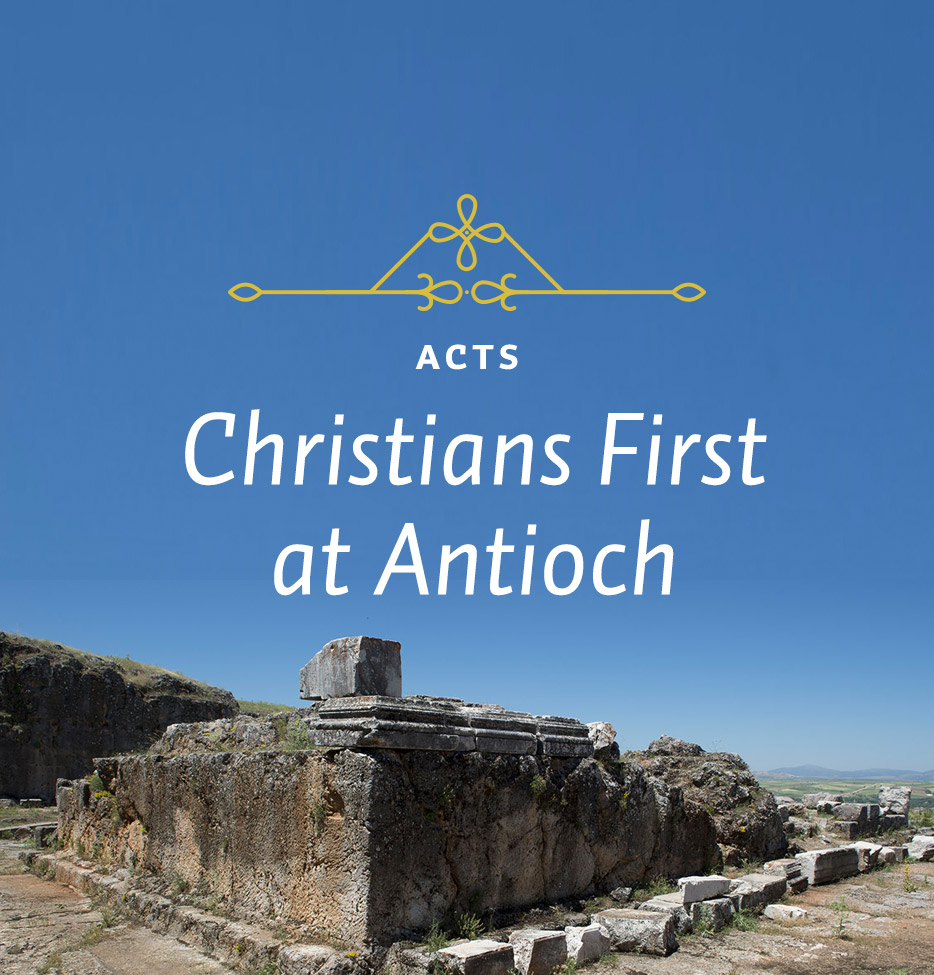It is at this point, where God had established the church at Antioch, a church of many races, and had raised up the dual ministry of Paul and Barnabas to lead it—a church that is closer to today’s churches than any that we have seen so far in Acts—that for the first time the disciples of Jesus Christ were called “Christians.” The text says, “The disciples were first called Christians at Antioch” (v. 26).
They had been called a lot of other things before this. The first word that had been used to describe them was “disciples.” They were disciples of their Master. That name prevailed through the lifetime of Jesus Christ.
Afterward, they were called “saints.” Jesus had given them that word, calling them “holy ones.” A saint is one who is committed to or devoted to God, which we all are by definition if we are followers of Jesus Christ.
They were called “believers.” This does not refer only to their intellectual beliefs, but also to the fact that they had responded with joyous commitment when the Gospel was preached to them.
They were called “brothers.” A new sense of brotherhood and sisterhood enveloped these members of the early church. They knew they were part of a new order of humanity.
They were called “witnesses.” Jesus said, “You will be my witnesses” (Acts 1:8), and so they were. They witnessed to the truth about Jesus Christ throughout the whole world.
Here, for the very first time, these disciples, saints, believers, brothers and witnesses were called Christians. What is that? A Christian is a “Christ-one.” Where did the believers in Antioch get that name? They did not get it from the Jews, because Christ means “Messiah” and the Jews would never have used that word to describe Jesus. They did not get it from one another either, because they already had all these other names. They must have gotten the name Christian from the pagans around them, for the Gentiles would have looked at these followers of “the way” and said, “They are Christ-ones. They are trying to be like Jesus.” I do not think they said this in a derogatory way, though in some cases it could have been derogatory. I think instead that it was a genuine acknowledgment of what seemed to motivate these people.
It is appropriate in view of their being called “Jesus men” that the last paragraph of the chapter shows how the Christians in Antioch functioned. A prophet named Agabus, who will show up again later in connection with the Apostle Paul, predicted that a famine was coming that would spread across the Roman world. We are not told that Agabus told the church what they should do about it; he merely prophesied. But they, being filled with the Spirit of Christ, immediately asked what Christ would do in such a situation. The result was what we are told about it in verse 29: “The disciples, each according to his ability, decided to provide help for the brothers living in Judea.” So they collected money and sent the gift to Jerusalem by Saul and Barnabas.
As far as I know, this is the first charitable act of this nature in all recorded history: one race of people collecting money to help another people. No wonder they were called Christians first at Antioch.
When the text says that “the disciples were first called Christians at Antioch” it means that Antioch was the first place they were given that name. But, taking that sentence another way, we might also observe rightly that they were Christians first of all, before anything else. They could have been Gentiles first and only Christians second, in which case they would have said, “We are Gentiles. Why should we send money to the Jews?” They could have been pagans first and Christians second, in which case they would have said, “Why should we worry about anyone but ourselves?” Actually, they were neither of these. They were Christians first. And because they were Christians first, they felt a bond with all other believers and were determined to help them when the need arose.
Are you a Christian first? Is that the most important thing about you? Are you happy most of all to be a follower of Jesus Christ? If you are, then the Gospel will go forward. God will bless it, and many other people will be brought to the Lord Jesus Christ through your witness.






